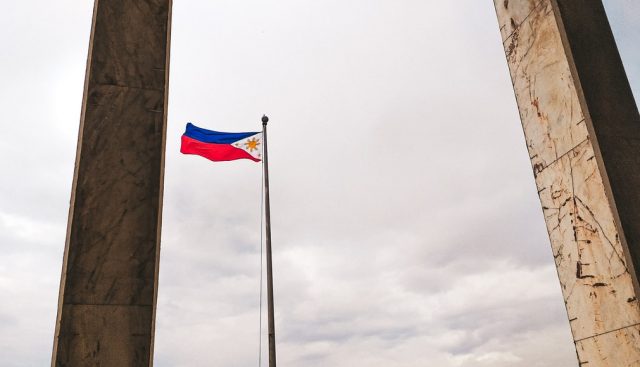With a population of just over 110 million, the Philippines will hold presidential elections on May 9. This will be the largest election in Asia in 2022.
This will end Rodrigo Duterte’s presidency, as Philippine presidents are constitutionally barred from serving more than a single six-year term. Under Duterte, the Philippines has witnessed the intensification of authoritarian practices. Human Rights Watch reports on the undermining of democracy, human rights, and civil liberties. The Duterte administration also exposed the fragility of many Philippine democratic institutions.
 To strengthen democracy in the Philippines it will take much more than just an election. It requires a strategic, long-term, inclusive approach to meaningfully strengthen democratic institutions and move democracy forward.
To strengthen democracy in the Philippines it will take much more than just an election. It requires a strategic, long-term, inclusive approach to meaningfully strengthen democratic institutions and move democracy forward.
Although Duterte is not running he remains popular with Filipinos. This gives him significant influence in the race to choose his successor. His daughter, Davao City Mayor Sara Duterte, is running for the vice presidency allied with Ferdinand “Bongbong” Marcos Jr., son of the late dictator. The Philippines elects presidents and vice-presidents separately; they do not need to be from the same party.
That two powerful families have decided that it is in their best interest to join forces should be cause for alarm, but unfortunately political dynasties have become the norm in the Philippines. A report from Rappler estimates between 70-90 percent of elected offices are controlled by influential families.
For those interested in improving human rights, democratic governance, and fair economic opportunities, this is the right time to look for and be prepared to take advantage of new openings.
Marcos Jr. is the only son and namesake of the dictator who ruled the Philippines for two decades. For 14 of those years, the country was under martial law. Overall, some 70,000 people were imprisoned, 34,000 were tortured, and 3,240 were killed, according to Amnesty International. Marcos senior was finally ousted by a pro-democracy uprising in 1986, the People Power Revolution, when more than a million Filipinos took to the streets to overthrow the corrupt and brutal regime. Since the ouster, the Marcos family has been rebuilding and burnishing its image, repeatedly denying allegations that it stole billions of dollars while in power. Marcos Jr. remains unapologetic about his father’s regime, while defending President Duterte’s controversial war on drugs.
Given the family history, it is notable that the younger Marcos is the clear frontrunner in the electoral race. His closest rival, Vice President Leonor “Leni” Robredo, is far behind with just 11 percent support. Robredo is not from the same party and on the opposite end of the political spectrum from President Duterte, with whom she has repeatedly clashed over human rights, the handling of the pandemic, and Duterte’s close ties with China. Since the Philippines has a single-round, first-past-the-post electoral system, where there are no runoff elections, Marcos Jr. just needs to win more votes than the other ten candidates in the race.
The Philippines will have a new president this summer. But identifying paths forward to reverse illiberal trends and strengthen democracy will take a lot more work. For those interested in improving human rights, democratic governance, and fair economic opportunities, this is the right time to look for and be prepared to take advantage of new openings. In the run up to the May elections, CIPE will host a series of blogs and podcasts discussing what is at stake for the Philippines and explore possible opportunities to meaningfully strengthen the country’s democratic institutions.
Published Date: January 06, 2022
